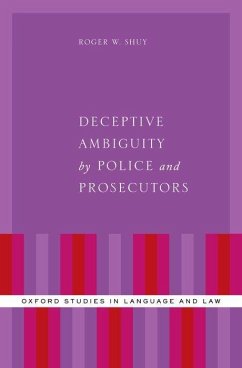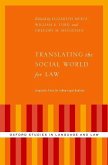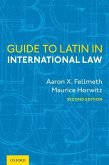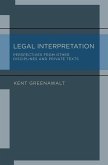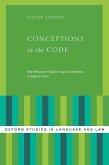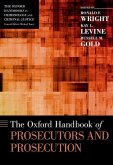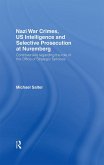Ambiguity is commonly considered unintentional while deception is considered intentional. Here, Roger W. Shuy describes fifteen criminal cases in which police, prosecutors, and undercover agents used deceptive ambiguity with criminal suspects and defendants, many times giving evidence of being intentionally constructed through the manipulation of the speech events, schemas, agendas, speech acts, strategies, lexicon, and grammar. Although certain types of intentional deceptive ambiguity are central for successful undercover operations, the case examples in this book demonstrate how various types of deceptive ambiguity are common not only in undercover operations but also in police interviews and courtroom examinations conducted by prosecutors.
Bitte wählen Sie Ihr Anliegen aus.
Rechnungen
Retourenschein anfordern
Bestellstatus
Storno

